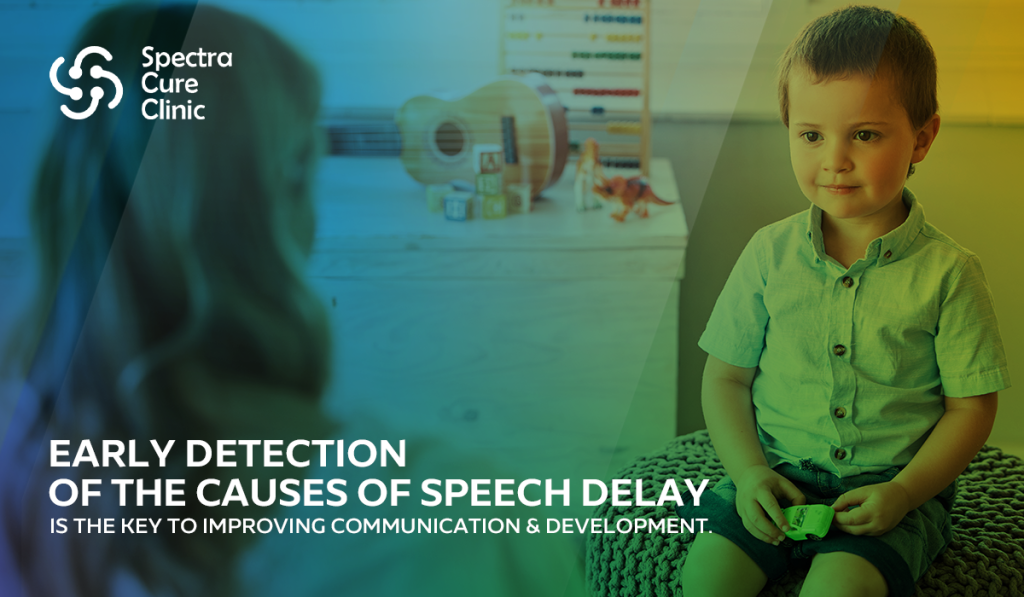
Early Detection of the Causes of Speech Delay is the Key to Improving Communication & Development.
In certain instances, children with Autism Spectrum Disorder (ASD) may experience speech delays, affecting their ability to communicate verbally such as forming words, sentences, and phrases، compared to their peers.
For these children, the challenges posed by speech delays can be considerable. Communication is a crucial part of life, and difficulties in this area can hinder a child’s capacity to engage with others, convey their thoughts and emotions, and build meaningful relationships.
Challenges in Expressive Communication
People with autism may face difficulties such as:
- Controlling body movements
- Organizing words into coherent sentences
- Moving their mouth properly to articulate words
- Managing involuntary actions caused by the brain
- Struggling with gestures like pointing despite understanding their purpose
Echolalia and Scripting in Autism
Echolalia (repetitive speech) and scripting (quoting movies or commercials) are common in autism, often triggered by stress, excitement, or boredom. These behaviors may stem from imbalances in serotonin and other neurotransmitters. Research suggests some individuals with autism have increased serotonin receptors in the right brain, leading to reliance on memory for communication. This results in repetitive patterns rather than spontaneous interaction.
Difficulty mimicking others or processing social cues is linked to underperforming mirror neurons. However, balancing neurotransmitters and improving mitochondrial energy production have shown promising results in reducing these repetitive behaviors.
Our Approach to Language Development
Supporting speech and language involves addressing underlying biomedical and nutritional factors:
- Methylation Support: Supplements like DMG, TMG, methionine, SAMe, and injectable B12 improve neurotransmitter balance.
- Dietary Adjustments: A grain- and dairy-free, high-fat diet (modified ketogenic) enhances mitochondrial energy production, boosting language development. Gut health is also critical, as harmful microbes like Candida and Clostridia can disrupt the microbiome.
- Detoxification: Heavy metals and toxins deplete glutathione, crucial for liver detoxification. Treatments like methyl B12, NAC (n-acetyl-cysteine), and glutathione supplementation reduce repetitive behaviors and promote brain function.
- Nutritional Supplements: Vitamin B6, magnesium, and taurine reduce excitatory glutamate levels, further improving communication.
By targeting these root causes, many individuals with autism achieve notable progress in expressive and receptive language, enabling them to communicate more effectively and improve their quality of life.
Post Views: 583

